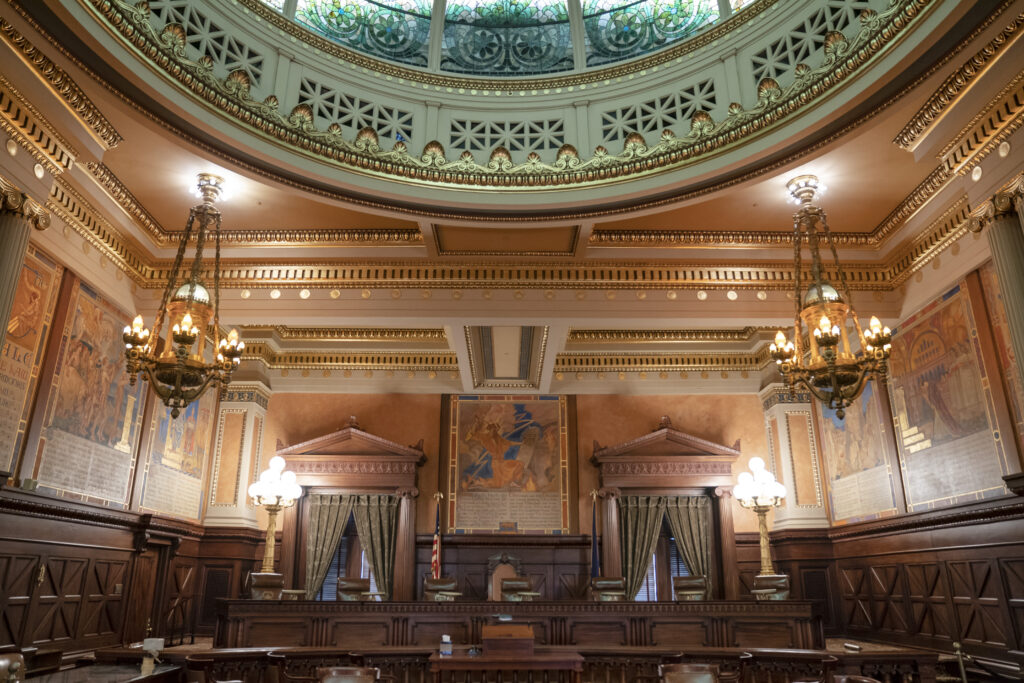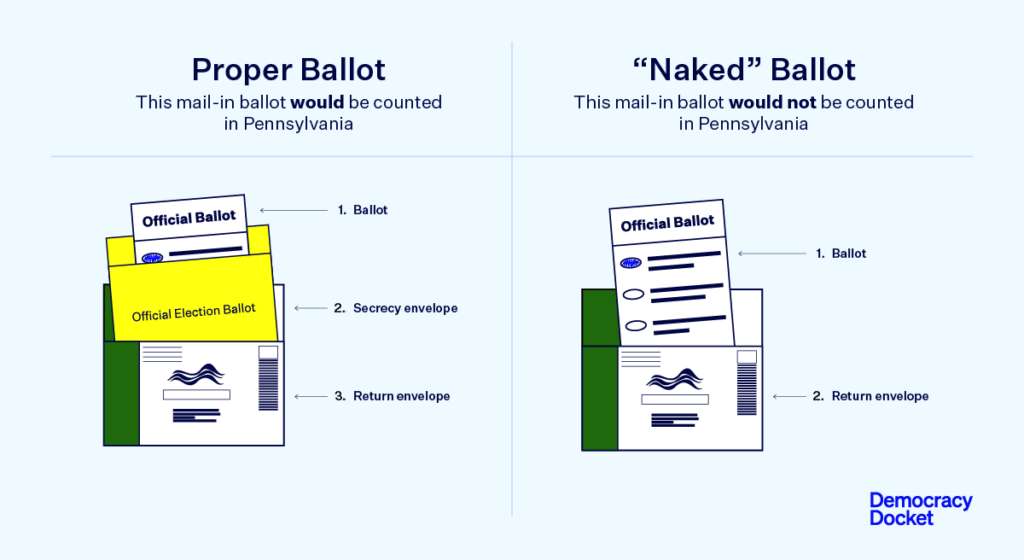Pennsylvania Must Count Provisional Votes From Those Who Submitted “Naked” Mail-in Ballots

The Pennsylvania Supreme Court ruled that counties must count provisional ballots cast in person by voters who mistakenly submitted “naked” mail-in ballots that lacked an inner secrecy envelope.
According to the consequential 4-3 opinion that will protect voters from disenfranchisement in the upcoming election, a lower court “correctly” determined “the casting of a provisional ballot is specifically authorized in the [Pennsylvania] Election Code.”
“Provisional ballots exist as a failsafe to preserve access to the right to vote…[and are] intended to alleviate potential disenfranchisement for eligible voters. Counting Electors’ provisional ballots, when their mail ballots are void for failing to use a Secrecy Envelope, is a statutory right,” the opinion continues.
Just two days after the ruling, the Republican National Committee (RNC) and Pennsylvania Republican Party asked the state Supreme Court to pause its ruling pending an appeal to the U.S. Supreme Court. Alternatively, the Republicans said the state’s highest court should modify its ruling to require that any provisional ballot cast by someone whose mail-in ballot was rejected be kept separate from other ballots and ultimately be excluded from the vote total in the upcoming election.
Pennsylvania has the most voting and election lawsuits filed this cycle and many of them focus on the state’s mail-in voting rules.
Democracy Docket is the only news outlet tracking and reporting on all of these cases — sign up for our free daily and weekly newsletters to get the latest updates sent straight to your inbox.
The high court’s decision stemmed from a lawsuit brought by two Butler County voters for whom the county board of elections refused to count their provisional ballots cast in the 2024 primary election. In a Sept. 5 ruling affirmed by Wednesday’s decision, the Commonwealth Court sided with the voters, concluding that the board erred when it disenfranchised the voters by disqualifying their provisional ballots.
The Republican National Committee (RNC) and state GOP promptly appealed the Commonwealth Court’s ruling to the Pennsylvania Supreme Court, which agreed to review the case last month.
The Republican appellants argued that allowing Butler County voters to cast provisional ballots would essentially force the county to implement cure procedures for those who submit naked ballots — a proposition soundly rejected by Wednesday’s majority ruling.
Although Butler County currently allows voters to cure defective mail-in ballots with date or signature errors, it does not provide such a remedy for naked ballots. In a 2020 case, the Pennsylvania Supreme Court concluded that naked mail-in ballots must be disqualified — rendering provisional voting all the more crucial for voters whose ballots are thrown out on the basis of a missing secrecy envelope.

The RNC and state GOP had also maintained that Pennsylvania law precludes the counting of a provisional ballot if the voter’s mail-in ballot is timely received — even in cases where the mail-in ballot is tossed out due to a disqualifying error. The court similarly rebuffed this legal argument.
Meanwhile, the Butler County voters — who inadvertently forgot to place their mail-in ballots in a secrecy envelope — alleged that the board’s rejection of their provisional ballots ran afoul of state election law and the Pennsylvania Constitution’s guarantee of “free and equal” elections.
The Democratic National Committee echoed that position and stated in a court filing that the RNC’s argument “serves no purpose but to disenfranchise mail voters.”
On appeal, the voters further emphasized that provisional voting is distinct from discretionary ballot curing, contending that the RNC “erroneously conflates ‘notice and cure’ programs with Pennsylvania’s longstanding statutory provisional ballot process.”
Under previous Pennsylvania Supreme Court precedent, counties are not legally obligated to offer notice-and-cure procedures, but many do so voluntarily. In a brief supporting the Butler County voters, Pennsylvania Secretary of the Commonwealth Al Schmidt (R) reiterated that provisional voting isn’t tantamount to curing.
Schmidt acknowledged that state law is somewhat ambiguous as to whether counties should count provisional ballots cast by voters who timely returned defective mail-in ballots. However, in line with the Commonwealth Court’s reasoning, he maintained that “arbitrarily denying provisional voting only to mail voters who timely return invalid mail ballots serves no election purpose and therefore unconstitutionally burdens the right to vote.”
Democratic Pennsylvania Supreme Court Justice Christine Donohue, who authored the ruling, ultimately concluded “that it would be difficult to discern any principled reading of the [state constitution] that would allow the
disenfranchisement of voters as punishment for failure to conform to the mail-in voting requirements when voters properly availed themselves of the provisional voting mechanism.”
Richard Ting, senior staff attorney at the ACLU of Pennsylvania, said in a press release that “the state Supreme Court’s ruling…means that every eligible voter across the commonwealth can have confidence that, if they make a mistake with their mail ballot return packet, they’ll have the chance to submit a provisional ballot that will be counted in this critical election.”
A decision from the Pennsylvania Supreme Court remains pending in another case that could also affect the battleground state in the upcoming election. In that lawsuit — originating from Washington County — the RNC asserts that counties should not be required to notify voters if their mail-in ballots are excluded due to technical errors.
Just last month, the state Supreme Court rejected Republicans’ wholesale request to ban ballot curing statewide and prohibit provisional voting as a means of rectifying faulty mail-in ballots.
Learn more about the case here.
This story was updated on Friday Oct. 5, at 1:10 p.m. EDT to reflect the fact that the RNC and PA GOP asked the Pennsylvania Supreme Court to pause Wednesday’s ruling as they plan to appeal the case to the U.S. Supreme Court.